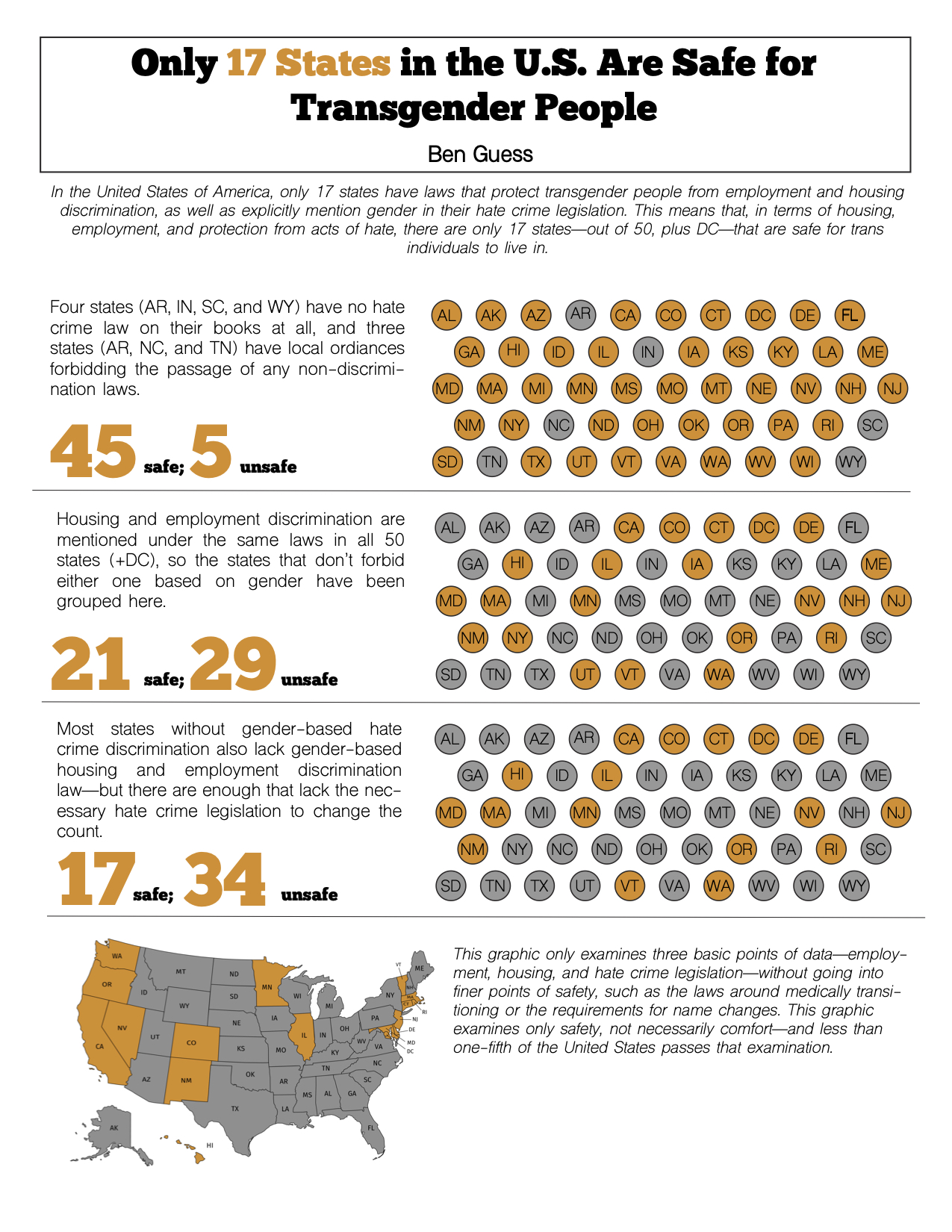
phone: (206) 643-2059 | email: benguess07@gmail.com | pronouns: they/them
journalist
specializations: data journalism, coding, visualizations

My name is Ben Guess, and I’m a recent graduate of The New School. I have a passion for accurate, detailed, relevant reporting, and have spent the last four years learning how to code in HTML, CSS, and Javascript; working with Adobe Illustrator and Premiere; and learning the ins and outs of data visualization. I believe that the futures of technology and journalism are intertwined, and that newer ways of using that technology - podcasting to an enormous audience on digital platforms, visualizing data in code, using graphics to bolster and illustrate a story of any form - are going to be at the forefront of journalism, going forward. I believe in using diverse types of media to tell diverse types of stories - and that sometimes, too, new forms of media can bring to light unexplored aspects of the stories themselves.
This is my newest project—a weekly newsletter that takes a different dataset related to the news and visualizes it in a new and interesting way. I think data can give depth and breadth to a story, especially when it's visualized well, and so I want to demonstrate how important it can be across various types of news stories.

This project was the result of three months' worth of interviewing, researching, writing, coding, and animating. During the 2020 election, when there was a lot of discussion around the effects of strict voter ID laws, I became curious about how they affected trans people - a demographic that wasn't talked about much in relation to voter suppression at the time. What I found, though, was that trans voters were facing a struggle that was both difficult and for the most part, unseen - and so I coded a site from scratch to host what I had discovered, taking the form of both a traditional longform news piece and several data visualizations to highlight and bolster the story.

This is a piece of data visualization that is very close to me. I wanted to see which states in the US were the best for trans individuals to live in, and was forced to lower the bar to which states were "safe"—in this case, what states had hate crime laws on their books—specifically ones mentioning gender in any capacity—and outlawed housing and employment discrimination based on gender. In 2019, at least, only 17 states out of 50 passed this test.